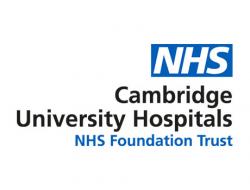Core trials
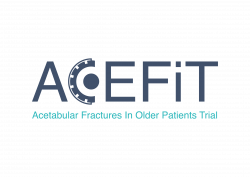
AceFIT
Acetabular fractures occur in a similar patient population to that of hip fracture patients. They also have similar co-morbidities such as cognitive impairment and osteoporosis. NICE guidelines for the management of hip fractures state that…

APHome02
Type 1 diabetes mellitus (T1D) is characterised by an absolute deficiency of insulin caused by immunologically-mediated damage to the beta cells in the pancreas and raised blood glucose levels. It is one of the commonest endocrine and metabolic…

ATP
According to the World Health Organization, more than 300 million people suffer from depression globally, equivalent to a lifetime prevalence of 7 to 12% for men and 20 to 25% for women. MDD is the leading cause of disability worldwide and a…

CETO
At least one-quarter of the UK adult population has hypertension, which is a major risk factor for heart attacks and stroke. Primary aldosteronism (PA), a treatable form of hypertension, accounts for 5-10% of all cases, and 20-25% of those with…
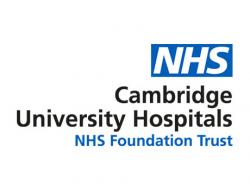
CIST Pilot Study
Breast cancer is the most common cause of death for European women between 20 and 70 years of age, with approximately 430,000 new breast cancer diagnoses every year. Over 20 million European women are screened annually for early detection through…

CLOuD
Management of newly diagnosed T1D in children and adolescents is challenging for patients, families, carers, and health care professionals. Glucose is the dominant metabolic substrate for brain function and the glycaemic instability inherent…
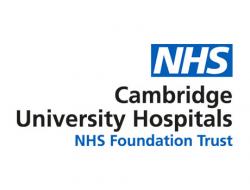
DILfrequency
Type 1 diabetes (T1D) is the most common severe chronic autoimmune disease worldwide with a rapidly increasing incidence and prevalence, occurring in adults and children equally. The aetiology of T1D is an autoimmune (loss of self-tolerance)…
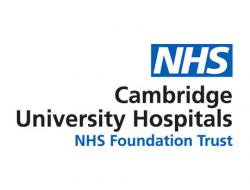
DILT1D
Type 1 diabetes is the most common severe chronic autoimmune disease worldwide. The incidence of type 1 diabetes is rising rapidly with a predicted increase in paediatric cases of 70% over the next 15 year in Europe. The aetiology of type 1…
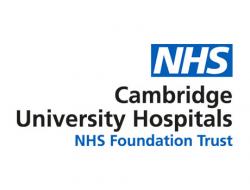
DRINK
Autosomal Dominant Polycystic Kidney Disease (PKD) affects 12.5 million people worldwide, and accounts for 7% of those requiring renal replacement therapy. The hormone vasopressin drives cyst growth until ultimately most of the normal functioning…
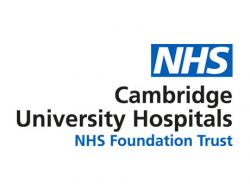
E-Vac
Approximately 2,800 cases of upper gastrointestinal (GI) leak occur annually in the UK. Leaks from the upper gastrointestinal (GI) tract pose a significant management problem. Traditional treatments including surgery and enteral stenting are…

FibroScHot
Periportal fibrosis is the severest pathology caused by schistosomiasis mansoni. Large fibrotic deposits in the liver can lead to portal hypertension and death by haematemesis. The cornerstone of disease control is annual preventative…

IASO
Ulcerative colitis (UC) is an inflammatory condition of the large bowel associated with diarrhoea, pain and bleeding that affects 120,000 people in the UK. Patients at the most severe extreme, who are hospitalised with acute severe UC (ASUC),…

IDEA-FAST
For patients with chronic diseases such as neurodegenerative disorders and immune-mediated inflammatory diseases, a key attribute for any successful therapeutic intervention is its ability to improve the patients’ activities of daily living…
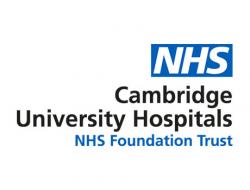
IISNeP
Chronic pain can arise from direct damage to the nervous system, which is known as nerve or neuropathic pain. Examples include sciatica and the pains caused by shingles or diabetes. Neuropathic pain is pernicious and treatments are often…

IIVoP
Patients with chronic neuropathic pain complain of pain in the absence of a painful stimulus. These spontaneous sensations can be constant and burning or intermittent and sharp or stabbing in quality. Pain can also be brought on by normally…
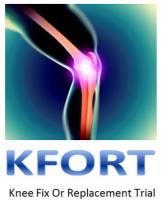
KFORT
Despite potential surgical advances in the management of distal femur fractures (DFF), the optimum management in elderly patients remains unclear. These injuries are challenging to manage – the fracture is often in multiple fragments and further…

PROFILE
Crohn’s disease (CD) is a relapsing-remitting form of inflammatory bowel disease (IBD) that can affect any part of the intestinal tract, most commonly the ileum and the colon. It is a common condition, affecting at least 115,000 people in the…
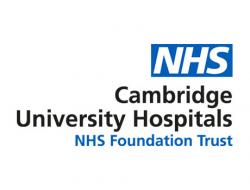
PROMISE
Segmental overgrowth disorders are rare conditions characterised by abnormal growth which is usually asymmetric and confined to discrete parts of the body. We and others have recently identified mosaic activating mutations in the p110α catalytic…

PROTECT-V
PROTECT-V is an international, multicentre study aiming to identify medications which protect vulnerable patients from COVID-19. The trial is enrolling participants who are at particularly high risk of COVID-19 and its complications. We are…
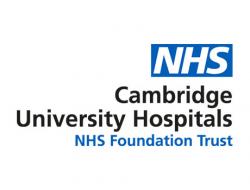
PT-1
The myeloproliferative disease primary thrombocythaemia (PT), also known as essential thrombocythaemia, has a median age of presentation of 60 years but is increasingly being recognised at an earlier age. The risks of the untreated condition are…

ReVise
This research aims to develop a scalable, inclusive, and sustainable model for remote ophthalmic consultations integrating vision self-testing through the DigiVis app. With…
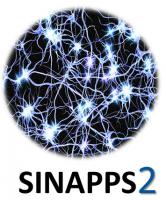
SINAPPS2
Psychosis and schizophrenia are caused by factors associated with excess dopamine and abnormally low N-methyl D-aspartate receptor (NMDAR) functioning. There is increasing evidence for the role of inflammation in these disorders. We propose that…

TAR:GET-1
Kidney transplantation is the treatment of choice for most patients with end-stage kidney disease (ESKD), resulting in improved health and patient survival, quality of life and health economic benefit in comparison to remaining on…
The PHOSPHATE Trial
Binding of intestinal phosphate in patients with KF has been practiced for more than half a century. Today, 88% of UK dialysis patients require binders to achieve treatment targets. Although dialysis is a life-sustaining therapy, the death rate…

The SIMPLIFIED Registry Trial
In the United Kingdom, nearly 30,000 people receive regular dialysis and 6,000 new patients start dialysis each year. Although this is a life-saving treatment, dialysis-requiring renal failure carries a worse prognosis than most malignancies,…

TOP-TBI
Annually, an estimated 69 million people suffer a traumatic brain injury (TBI) with about 200,000 TBI patients admitted to hospitals in the UK. Following a TBI, patients are at high risk of morbidity and mortality, including the development of…

TRACE
Food allergy is a common condition, affecting 5-8% of the childhood population and 2-4% of adults and the most frequent cause of fatal allergic reactions. Consequently, it is a problem of significant public health importance. We currently…
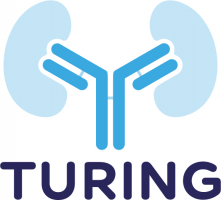
TURING
Minimal Change Disease (MCD) and Focal Segmental Glomerulosclerosis (FSGS) are auto-immune renal diseases that present with a common clinical phenotype, the nephrotic syndrome (NS), characterised by heavy proteinuria and debilitating oedema. When…

